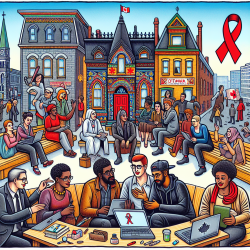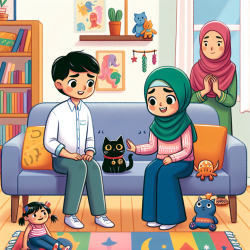Introduction
The recent editorial in the Journal of Religion and Health, titled "Chaplaincy, Cancer, Aged Care and COVID-19," provides a comprehensive exploration of the evolving role of chaplaincy in healthcare settings. As practitioners dedicated to improving outcomes for children, it is crucial to understand the intersection of spiritual care and healthcare, especially in the context of ongoing global challenges such as COVID-19 and cancer.
The Role of Chaplaincy in Healthcare
Chaplaincy has traditionally been associated with providing spiritual support in religious settings. However, recent research underscores its critical role in healthcare environments. The article highlights the proactive and reactive support chaplains offer, which is highly valued by healthcare professionals, including paramedics and hospital staff. This support is crucial regardless of the personal spiritual or religious beliefs of the healthcare providers.
In particular, the research by Aiken et al. emphasizes the importance of chaplaincy in supporting healthcare staff at a Women’s and Children’s hospital in Adelaide. The presence of chaplains, their professional conduct, and their ability to offer relational support have been shown to be invaluable in these settings.
Addressing Moral Injury
Moral injury, a topic of significant concern, especially among military veterans, is another area where chaplains play a pivotal role. The research discusses the concept of 'pastoral narrative disclosure' (PND) as a method to aid veterans suffering from moral injury. This approach highlights the substantial role chaplains can have in the rehabilitation process, offering a unique perspective that integrates spiritual care into mental health treatment.
Utilization and Barriers
Despite the recognized benefits, the utilization of chaplaincy services can be influenced by various factors. Research by White and Fitchett et al. from the USA indicates that spiritual care is often 'triaged' to patients with a religious affiliation or those in high need. This suggests a need for systematic screening of spiritual needs and better education of clinical staff about the role of chaplaincy.
Moreover, the research by Tad et al. reveals that even non-religious patients may desire spiritual conversations, challenging the assumption that spiritual care is only relevant to those with religious identities.
Implications for Practitioners
For practitioners working with children, integrating chaplaincy into healthcare can provide holistic support that addresses not only physical but also emotional and spiritual needs. This is particularly relevant in pediatric settings where the emotional and spiritual well-being of both patients and their families is paramount.
Practitioners are encouraged to engage with this research to understand better how chaplaincy can be utilized to enhance patient care. Furthermore, ongoing research and collaboration with chaplains can lead to improved outcomes and more comprehensive care strategies.
Conclusion
The insights from the "Chaplaincy, Cancer, Aged Care and COVID-19" editorial offer valuable perspectives on the integration of spiritual care into healthcare. By understanding and implementing these findings, practitioners can enhance the quality of care provided to patients, particularly children, in various healthcare settings.
To read the original research paper, please follow this link: Chaplaincy, Cancer, Aged Care and COVID-19.










